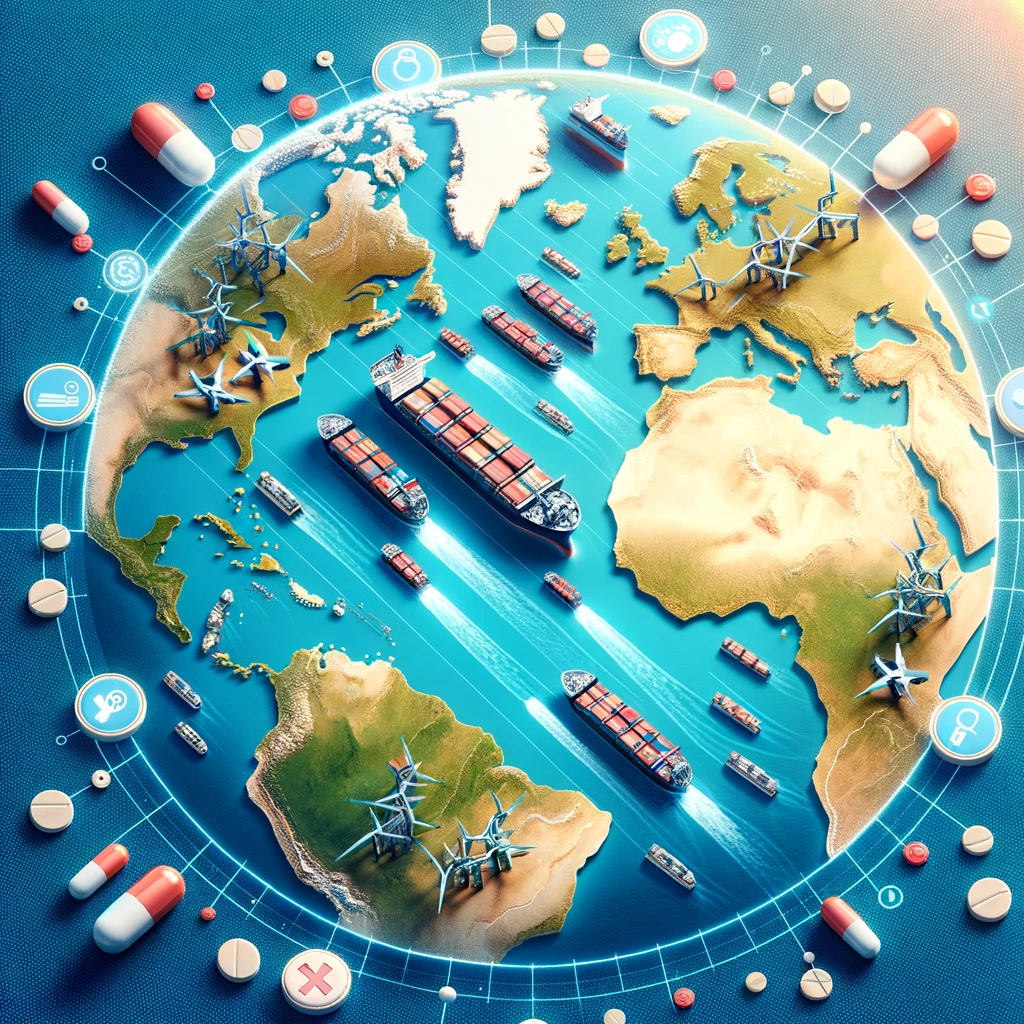The simmering tensions in the Red Sea and Bab al-Mandab Strait are sending ripples through one of the world’s busiest shipping arteries, directly impacting the vital pharmaceutical industry. Houthi militant attacks and the excessive response from major powers have forced shipping companies to reroute their vessels, adding days to journeys and inflating costs. This isn’t just a blip on the radar – it’s a full-blown storm threatening to disrupt the delicate dance of delivering life-saving drugs across the globe.
The Ripple Effect:
- Delayed Deliveries: The detour around Africa’s southern tip adds at least 10-14 days to the voyage. This delay can be a death sentence for pharmaceuticals, especially temperature-sensitive ones. Imagine insulin stuck in transit, its potency fading with every passing hour.
- Costly Voyage: The rerouting isn’t just a scenic detour; it’s a financial sinkhole. Shipping costs have surged by over 248%, with a war risk premium adding another layer of burden. This translates to higher prices for everyone – from manufacturers to patients.
- Scarcity Bites: Longer routes and stalled shipments can lead to a scarcity of ships and shipping containers, which will result in shortages of critical drugs, leaving patients in the lurch. Imagine a cancer patient unable to access their life-saving medication because it’s stuck on a slow boat.
Weathering the Storm:
The pharmaceutical industry isn’t sitting idly by. They’re deploying a range of strategies to keep the medicine flowing:
- Diversifying Routes: No longer putting all their eggs in one basket, companies are exploring alternative sources and shipping lanes to reduce dependence on the volatile Red Sea.
- Stockpiling Savvy: Building strategic reserves of critical drugs acts as a buffer against transit delays, ensuring patients don’t face empty shelves.
- Taking Flight: Air freight becomes the knight in shining armor for urgent cases, albeit at a steeper cost.
- Joining Forces: Collaboration with peers and governments is key. Working together to secure maritime routes through diplomacy and security measures can calm the storm.
Staying Afloat:
Beyond the immediate crisis, the Red Sea situation serves as a stark reminder of the interconnectedness and vulnerability of global trade. To weather future storms, the pharmaceutical industry must:
- Stay Flexible: Adaptable contracts that allow for adjustments in delivery schedules and prices can provide much-needed financial leeway during disruptions.
- Open Communication: Keeping customers informed about potential delays and price changes fosters trust and understanding.
- Planning for the Worst: Scenario planning helps anticipate and prepare for various disruption scenarios, making the industry less susceptible to future shocks.
- Tech-Powered Future: Investing in technologies like blockchain and AI can improve supply chain transparency, tracking, and predictive analytics, giving companies a clearer picture of the road ahead.
The pharmaceutical industry is no stranger to challenges, but navigating the choppy waters of the Red Sea requires a new level of resilience and strategic agility. By implementing these measures and fostering collaboration, the industry can ensure the uninterrupted flow of life-saving medicines, even when the world around them is in turmoil.
At Logan Pharmaceuticals, we value transparency and honesty with our customers. That’s why we always keep our updated on the current situation regarding the shipping costs and delays that are affecting our industry. Due to the global supply chain disruptions and the limited availability of shipping carriers, we are facing some challenges in delivering orders on time and at a reasonable price. However, we are not giving up. We are constantly looking for alternative routes and modes of transportation to ensure that our customers receive their products as soon as possible.

